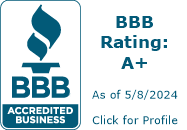Business Insurance
Business Insurance Explained: A Simple Guide for Small Businesses
Quick Overview
Do I Need It? → Yes, business insurance is essential and often required by law, contracts, or clients.
What It Covers → Protects against property damage, accidents, lawsuits, employee injuries, theft, cyberattacks, and more.
Main Types → General Liability, Workers’ Compensation, Professional Liability, Business Owner’s Policy (BOP), Cyber Liability, and Commercial Auto.

Do I Need Business Insurance?
If you’re starting or running a small business, insurance is not optional — it’s vital.
Here’s why:
It may be legally required in your state.
Clients and contracts often demand coverage.
It protects you from unexpected losses like lawsuits, accidents, or disasters.
Without insurance, one incident could put your business — and personal assets — at risk.
Common Risks Small Businesses Face
Property damage (fire, theft, or vandalism)
Car accidents with company vehicles
Employee injuries
Data breaches and cyberattacks
Liability lawsuits
Natural disasters
Bottom line: if you want your business to survive and grow, you need coverage.
Which Types of Business Insurance Do I Need?
The right coverage depends on your industry, operations, and risks. Factors to consider include:
Industry risks → Landscapers may need pollution coverage; lawyers need professional liability.
Employees → More workers = higher Workers’ Compensation needs.
Intellectual property → Tech startups may need IP protection.
Property and equipment → If your business relies on tools, vehicles, or buildings, insure them against fire, theft, and accidents.
As your business grows, you’ll likely need to adjust coverage — adding more protection or tailoring policies over time.
Main Insurance Types to Consider
🛡️ General Liability Insurance
Covers lawsuits from third parties (customers, clients).
Protects against:
Bodily injury (slip-and-fall accidents)
Property damage (caused by your work or employees)
Advertising liability (libel, slander, defamation on social media)
👷 Workers’ Compensation
Required in most states.
Covers employees if they’re injured or fall ill on the job.
Benefits include:
Medical expenses & rehabilitation
Lost wages while recovering
Funeral expenses & survivor support
Legal defense if sued over a workplace injury
📋 Professional Liability (Errors & Omissions)
For businesses that provide professional services (lawyers, architects, doctors, consultants).
Protects against claims of:
Mistakes or negligence
Breach of contract
Professional errors that cause client losses
Covers legal defense costs.
🏢 Business Owner’s Policy (BOP)
A bundle policy that combines:
General Liability
Commercial Property Insurance
Can be customized to include business interruption coverage (protecting income if you can’t operate after a disaster).
Cost-effective way for small businesses to get broad protection.
💻 Cyber Liability
Covers losses from data breaches, hacking, and cyberattacks.
Helps with:
Recovering lost income
Paying ransoms (cyber extortion)
Repairing reputation after data theft
🚗 Commercial Auto Insurance
Required if you use vehicles for business (delivery, transport, service).
Personal auto insurance will not cover business accidents.
Protects against lawsuits, vehicle damage, and medical expenses.
Key Differences Between Coverages
Workers’ Comp vs. General Liability → Workers’ Comp covers employee injuries; General Liability covers customer or third-party claims.
BOP vs. General Liability → BOP adds property coverage and custom options; General Liability alone does not.
Professional vs. General Liability → Professional Liability protects against mistakes in services; General Liability covers accidents and property damage.
Benefits of Business Insurance
✅ Financial protection → Covers damage, lawsuits, or disasters.
✅ Reputation boost → Shows clients, partners, and stakeholders you’re reliable.
✅ Business continuity → Helps you reopen and recover after a crisis.
✅ Risk-sharing → Prevents one incident from bankrupting your business.
Cost of Business Insurance
Premiums vary based on:
Your industry (some are riskier than others).
Business size (more employees = higher costs).
Location (areas prone to theft or natural disasters may cost more).
Coverage types and limits you choose.
On average, small businesses pay a few hundred to a few thousand dollars annually, depending on needs.
How to Get Business Insurance
Identify your risks → Consider your industry, employees, property, and operations.
Gather documents → Business ID number, claim history, employee count, property details.
Compare policies → Get quotes from multiple providers.
Work with a broker → A licensed insurance agent can help match your business with the right coverage.
Bottom Line
Business insurance isn’t just a box to check — it’s your safety net. One accident, lawsuit, or disaster can wipe out an uninsured business.
Start small with essential coverage (General Liability + Workers’ Comp + BOP), then expand as your business grows. Protect your employees, assets, and reputation now so you can focus on building your business for the future.
Disclaimer: * The 0% is for a limited period of time, your initial time period and final rate will be based on your qualifications and program offerings at time of application and approval. All programs are subject to change without notice. Submitting your business funding application will not impact your personal credit score. However, if you choose to proceed with an offer, certain funding options may require a hard credit inquiry. ChicagoBusinessLoans.com is not a direct lender and does not make credit decisions. Approvals are not guaranteed and are subject to bank/issuer decision. We do not provide legal, tax, or financial advice. Please consult a licensed professional for personalized guidance.
Leave your email and we will contact you in 24 hours

